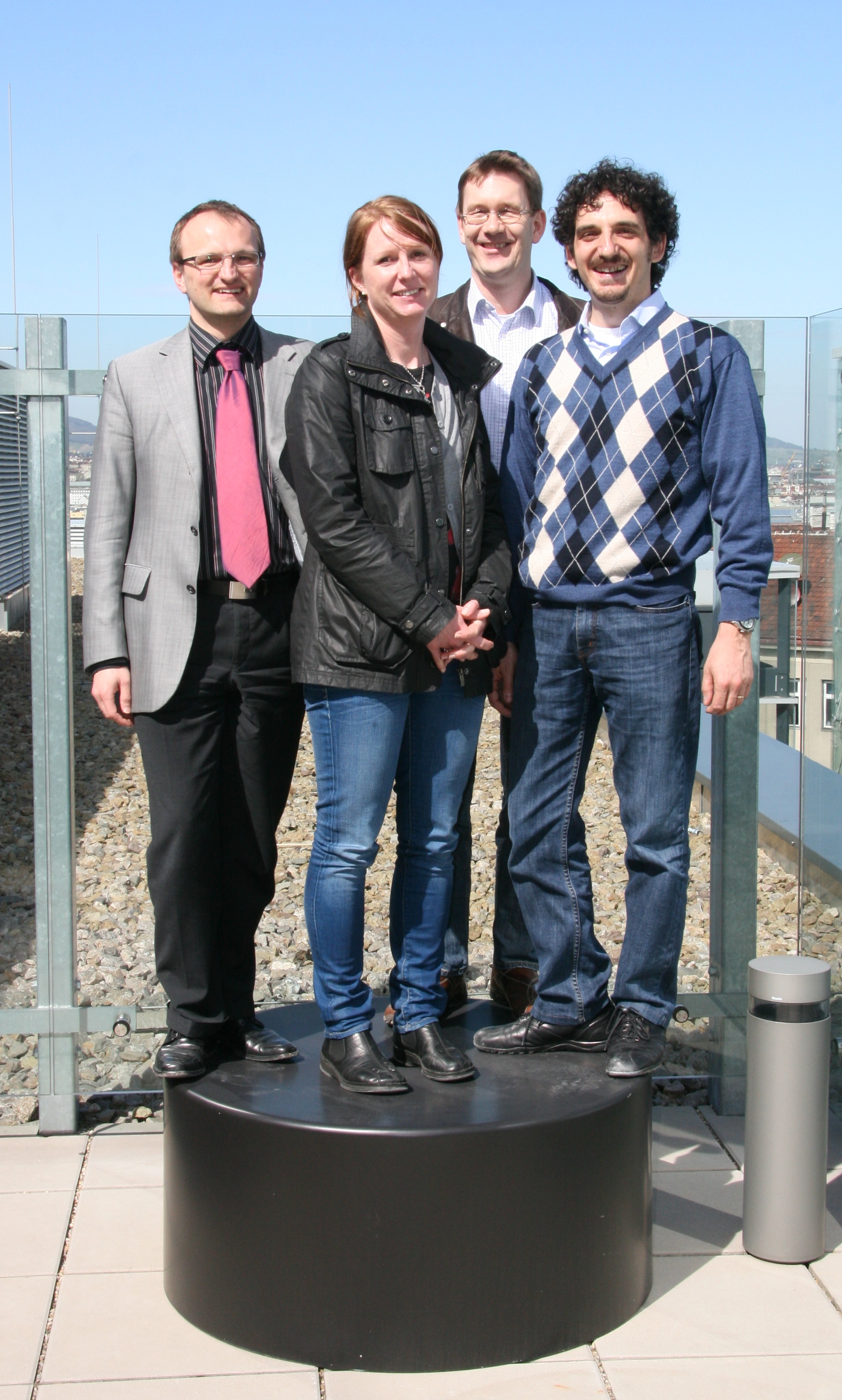Specialist Task Force 395:
Configuration and validation of channel
congestion control methods of ITS and techniques for co-existence cooperative
ITS / Dedicated Short Range Communication and performance and potential for the
STDMA medium access SA/ETSI/ ENTR/000/2009-08
Who we are:
The work within STF 395 is divided into two phases. Phase 1 started in January
2010 and phase 2 started their work
in
March 2011.
| Phase 1 |
|
Phase 2 |
|
| Team Leader: |
Thomas Ritter |
Team Leader: |
Katrin Sjöberg |
| Team Members: |
Dieter Smely
Jens Mittag
Nicolai Czink
Arno Hinsberger
Onn Haran
Robert Schmidt (not on photo)
|
Team Members: |
Riccardo Scopigno
Dieter Smely |


What we do:
This STF will provide rules and guidelines to ensure performance and robustness
of a cooperative communication system.
The first phase
of the STF develops congestion control methods for existing
wireless communication technology to cope with highly dynamic
traffic scenarios in a rapidly changing radio propagation
environment. The second task of the first phase of the STF will
describe what is necessary to ensure coexistence between CEN
DSRC and ITS G5.
The second phase
will investigate if a time slotted medium access control method
can increase the channel utilization for cooperative road
traffic safety systems.
For more details, see our
Terms of Reference
Why we do it:
ITS for road safety in the 5.9 GHz range contributes to the general goal of
reducing accidents and fatalities. The expectation is that the market for ITS
safety systems will be established. An important prerequisite is the scalability
of the systems, i.e. the systems should work in low and dense traffic scenarios,
with only a few or many ITS stations sharing the communication channel(s).
A common CCC policy will facilitate the market introduction of the system, since
new users can be assured that their system will continue working if the number
of participants in the VANET increases.
Improving road safety is a very important but
costly task, which currently is financed by public funding and
road tolling. Therefore, European Electronic Road Tolling is one
of the sources that will finance cooperative ITS. Ensuring
co-existence between these two technologies will keep the
established funding process operational and will raise the
acceptance for cooperative ITS by road operators and national
authorities. This will have a positive effect on the deployment
speed of cooperative ITS and hence the increase of road safety.
How we do it:
The work is planned in two phases:
Phase 1: Development of 2 ETSI TSs on
Channel Congestion Control and on coexistence between ITS and existing tolling systems
(TS
102 687 and TS 102 792)
ETSI DTS/ITS-0040013 providing
suggestions for coexistence of cooperative ITS with the already existing tolling
systems in the 5.9 and the 5.8 GHz bands
ETSI DTS/ITS-0040014 containing configuration recommendations and a
validation report for channel congestion control algorithms operating in the 5.9
GHz range. The ETSI TR will form the basis for a common CCC policy and default
specifications for cooperative ITS applications
Phase 2: Development of 2 ETSI TRs on
STDMA performance and parameter settings
(TR 102 861 and TR 102 862)
ETSI DTR/ITS-0040020
on the recommended parameter settings for using STDMA
for cooperative ITS
ETSI DTR/ITS-0040021
Performance evaluation of Self-organising Time Division
Multiple Access (STDMA) as Medium Access Control method applied to ITS
cooperative systems in road traffic scenarios.
Time plan for the work:
Phase 1
Initial meeting in Sophia Antipolis
08.03. – 13.03.2010
Meeting Vienna 23.03.2010
Meeting Vienna 25.05.2010
Meeting Vienna 23.08.2010
WG4 meeting Mainz – decision on phase 2
Phase 2
Initial meeting in Vienna 07.04.2011
WG4 meeting in Vienna 02.05.2011
How to contact us: